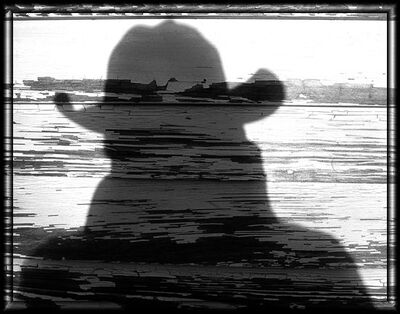How important is it to get the "correct exposure"?
Mar 30, 2019 21:15:17 #
Many folks here say or imply that getting the "correct" exposure is a must if you want to get good images. Many will add that you have to shoot in "manual" to get control of the camera and get that "correct" exposure. I'm wondering what message this sends to newcomers.
Yes, you should try to get the exposure as close to "perfect" in the camera.
Yes, there are difficult lighting situations that can cause the camera's light meter to give you readings that may be wrong for what you want. But, let's face it, changing exposure is just a matter of letting in more or less light and/or changing the ISO. The light meters in modern cameras are pretty darn good. And if the lighting is squirrelly, you can make the proper up or down adjustments using exposure compensation if you're in one of the auto modes. And you have a fair amount of control in post-processing, particularly if you're shooting RAW.
I don't mean to resuscitate the Manual vs. semi-auto modes debate. I'm just wondering if there is too much of a mystique being attached to getting the "proper" exposure. So how important is it to "nail" the exposure settings? Aren't there more important, or at least equally important considerations such as focus, depth of field, etc.?
Yes, you should try to get the exposure as close to "perfect" in the camera.
Yes, there are difficult lighting situations that can cause the camera's light meter to give you readings that may be wrong for what you want. But, let's face it, changing exposure is just a matter of letting in more or less light and/or changing the ISO. The light meters in modern cameras are pretty darn good. And if the lighting is squirrelly, you can make the proper up or down adjustments using exposure compensation if you're in one of the auto modes. And you have a fair amount of control in post-processing, particularly if you're shooting RAW.
I don't mean to resuscitate the Manual vs. semi-auto modes debate. I'm just wondering if there is too much of a mystique being attached to getting the "proper" exposure. So how important is it to "nail" the exposure settings? Aren't there more important, or at least equally important considerations such as focus, depth of field, etc.?
Mar 30, 2019 21:23:08 #
srt101fan wrote:
IMHO Light is our Language. With that said proper exposure along with Composition are critical for a fine image. With digital cameras looking at the histogram and image and making a + or - adjustment is a no brainer.Many folks here say or imply that getting the &quo... (show quote)
Mar 30, 2019 21:24:11 #
juan_uy
Loc: Uruguay
I would say that focus and depth of field are more important, as there are not practical (if possible at all) to correct in PP.
I think that most people that recommends "leaving auto mode" are usually talking about full auto. The default full auto-focus with all points available (whatever that is called in each camera) is a great source of missed shots.
Also, controlling shutter speed and aperture allows to start experimenting on different types/techniques, like long exposures, or separating the background for better portraits, etc.
But I am just a starting newbie amateur :)
I think that most people that recommends "leaving auto mode" are usually talking about full auto. The default full auto-focus with all points available (whatever that is called in each camera) is a great source of missed shots.
Also, controlling shutter speed and aperture allows to start experimenting on different types/techniques, like long exposures, or separating the background for better portraits, etc.
But I am just a starting newbie amateur :)
Mar 30, 2019 21:28:12 #
I think they’re all important. The less manipulations in pp the better. Over manipulation screams when you see it in an image.
Mar 30, 2019 21:29:04 #
To me trying to get right in the camera calls for less post processing.Happy Shooting.
Mar 30, 2019 21:35:18 #
srt101fan wrote:
Many folks here say or imply that getting the &quo... (show quote)
Yes, "getting it right" is important, but in this digital day, not as important as it was with film. As long as the image is not blown out, you can rescue it in post.
So Manual is important, Aperture priority is important, Shutter priority is important and Program mode is important. What is more important is getting the composition right. That's something thast is not easily fixed in post.
Mar 30, 2019 21:35:32 #
To answer your question, go back through your thousands of shots stored on the computer and see how many great shoots you can find with a Missed Exposure. Some images require to be either over exposed or under exposed to get the desired affect or set the mood for that specific image. That said, understanding exposure and how to capture light ranks near the top of the list to be an accomplished photographer. Simply relying on PP to fix ones lack of getting it right in camera is probable not the way I would learn photography but might work just fine for anyone else. And No, you do not have to shoot manual to get it right.....
Mar 30, 2019 21:45:08 #
pesfls wrote:
I think they’re all important. The less manipulations in pp the better. Over manipulation screams when you see it in an image.
I agree.
Mar 30, 2019 21:50:37 #
srt101fan wrote:
Many folks here say or imply that getting the &quo... (show quote)
Yes, getting the "correct" exposure is a must for a good photo. And yes other things must also be "correct", i.e. composition, dof, focus. All are included in a good photo. Sometimes some planning is also involved....a "good" photo is more than just getting the right light, or lack of it.
Mar 30, 2019 21:53:11 #
`
Just put the camera in green mode and you'll never
get a bad exposure. Maybe occasionally an exposure
that is not what you'd expected ... but your camera
doesn't know about your expectations. According to
the camera, ALL its exposures are correct, and since
it's the camera that makes the decisions, it's opinion
is the only opinion that matters. Acoarst, the more
often you agree with your camera, the happier you
will be with your camera and it's photographs.
.
Just put the camera in green mode and you'll never
get a bad exposure. Maybe occasionally an exposure
that is not what you'd expected ... but your camera
doesn't know about your expectations. According to
the camera, ALL its exposures are correct, and since
it's the camera that makes the decisions, it's opinion
is the only opinion that matters. Acoarst, the more
often you agree with your camera, the happier you
will be with your camera and it's photographs.
.
Mar 30, 2019 22:16:59 #
srt101fan wrote:
I'm just wondering if there is too much of a mystique being attached to getting the "proper" exposure. So how important is it to "nail" the exposure settings? Aren't there more important, or at least equally important considerations such as focus, depth of field, etc.?
There is no mystique about exposure. And, it is one of a number of equally important elements. It seems that you chose to single out exposure for this post, for whatever reason. Next post could be, How important is it to get the "correct focus"?, and so on down the list.
---
Mar 30, 2019 22:24:53 #
In digital photography, I believe getting a sharp focus is more important than even exposure. If shooting RAW, I also believe biasing the exposure to the right is more important than getting it 'correct'.
You must have been reading my mind or sniffing my emails as I was thinking about this question this morning. A friend asked for help on getting sharper images. Their results from Auto exposure on an EOS 70D were all nice, but the focus wasn't sharp. The idea of good focus vs good exposure was being chewed around in my mind while washing some dishes ...
Of course, you do need to process the results if you missed the exposure. Sharp focus with ugly under (or over) exposure isn't much better than great exposure with blurred focus. But, you really can't fix unfocused where exposure still has a lot of potential for correction in post.
(Bill, directly above, seems to have been reading my mind as well .... )
)
You must have been reading my mind or sniffing my emails as I was thinking about this question this morning. A friend asked for help on getting sharper images. Their results from Auto exposure on an EOS 70D were all nice, but the focus wasn't sharp. The idea of good focus vs good exposure was being chewed around in my mind while washing some dishes ...
Of course, you do need to process the results if you missed the exposure. Sharp focus with ugly under (or over) exposure isn't much better than great exposure with blurred focus. But, you really can't fix unfocused where exposure still has a lot of potential for correction in post.
(Bill, directly above, seems to have been reading my mind as well ....
 )
)Mar 30, 2019 22:35:29 #
Amateurs worry about equipment, Professionals worry about time, Masters worry light...
Mar 30, 2019 22:41:45 #
Bill_de wrote:
There is no mystique about exposure. And, it is one of a number of equally important elements. It seems that you chose to single out exposure for this post, for whatever reason. Next post could be, How important is it to get the "correct focus"?, and so on down the list.
---
---
No; I'm not going to post questions on the importance of other elements of good photography and I don't understand your negative tone. Exposure is one that, based on my reading of UHH posts, somehow has been elevated to a level not accorded to other aspects of photography.
And I'm not sure I understand why....
In most cases the camera, set to semi-auto modes, will give you decent exposures you can work with. Newcomers to photography might be better off concentrating on other things first....
Mar 30, 2019 22:51:00 #
What does "correct" exposure mean?
If you mean an exposure that allows you to print the full dynamic range of the scene in your selected medium (monitor, paper, metal print, transparency, etc.) then it means exposing for the highlights in digital media, exposing for the shadows in film.
If you intend to project a high key or low key image, one that runs either the highlights or shadows together, but leaves the other end well delineated, it's something different as well.
I remember taking sunset photos in my early years, with a film camera and hand held meter. I bracketed at one stop intervals on Kodachrome to get a variety of choices for my final images. You couldn't stretch the contrast in the darkroom, and underexposed slides developed a greenish or bluish cast that was very unappealing. I would meter on the foreground, on an average basis, and on an incident dome, to see what looked best.
The answer, as Kodachrome veterans may have already inferred, is "it depends". Sometimes the vision I saw in the viewfinder was best expressed as a darker exposure, sometimes one that would objectively be considered overexposed.
It was always an artistic or value judgment, even in this inherently SOOC type of photography. Although we have more tools to expand our choices on how to project our visions today, it remains an artistic judgment, at least in my opinion.
Andy
If you mean an exposure that allows you to print the full dynamic range of the scene in your selected medium (monitor, paper, metal print, transparency, etc.) then it means exposing for the highlights in digital media, exposing for the shadows in film.
If you intend to project a high key or low key image, one that runs either the highlights or shadows together, but leaves the other end well delineated, it's something different as well.
I remember taking sunset photos in my early years, with a film camera and hand held meter. I bracketed at one stop intervals on Kodachrome to get a variety of choices for my final images. You couldn't stretch the contrast in the darkroom, and underexposed slides developed a greenish or bluish cast that was very unappealing. I would meter on the foreground, on an average basis, and on an incident dome, to see what looked best.
The answer, as Kodachrome veterans may have already inferred, is "it depends". Sometimes the vision I saw in the viewfinder was best expressed as a darker exposure, sometimes one that would objectively be considered overexposed.
It was always an artistic or value judgment, even in this inherently SOOC type of photography. Although we have more tools to expand our choices on how to project our visions today, it remains an artistic judgment, at least in my opinion.
Andy
If you want to reply, then register here. Registration is free and your account is created instantly, so you can post right away.









